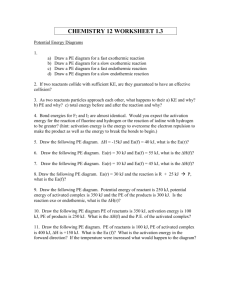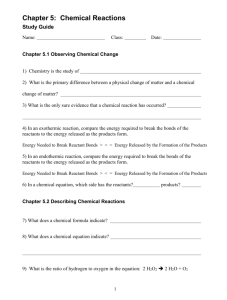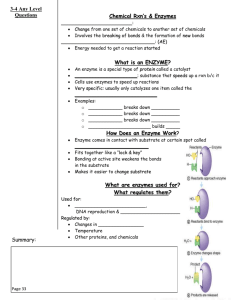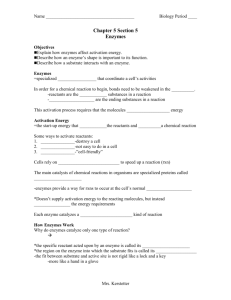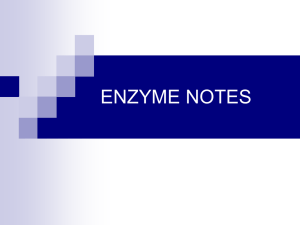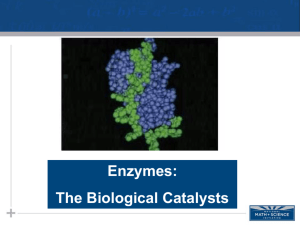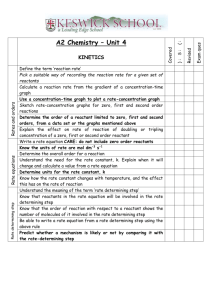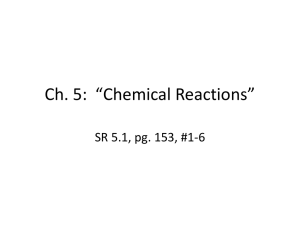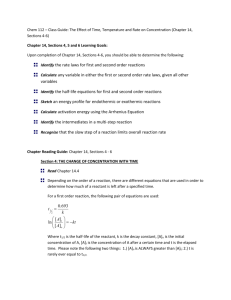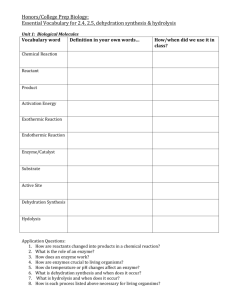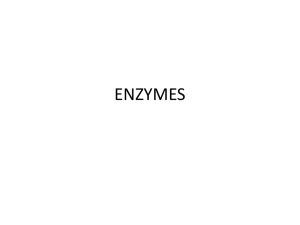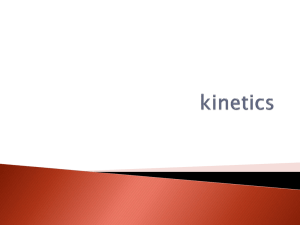Biochemist Date
advertisement
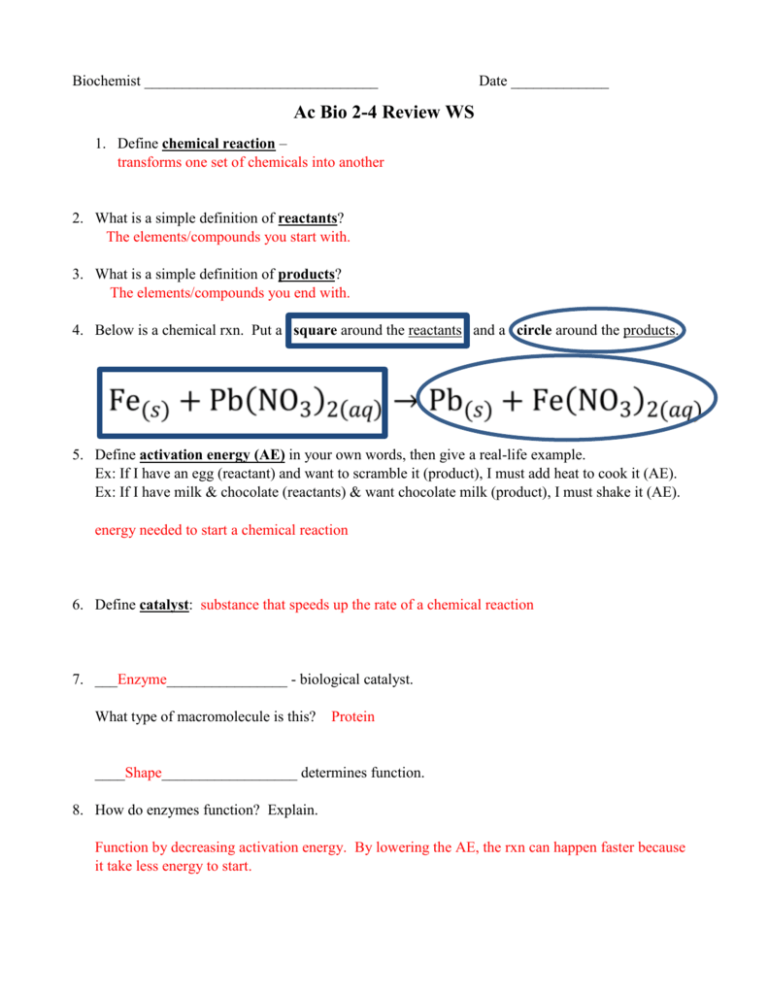
Biochemist _______________________________ Date _____________ Ac Bio 2-4 Review WS 1. Define chemical reaction – transforms one set of chemicals into another 2. What is a simple definition of reactants? The elements/compounds you start with. 3. What is a simple definition of products? The elements/compounds you end with. 4. Below is a chemical rxn. Put a square around the reactants and a circle around the products. 5. Define activation energy (AE) in your own words, then give a real-life example. Ex: If I have an egg (reactant) and want to scramble it (product), I must add heat to cook it (AE). Ex: If I have milk & chocolate (reactants) & want chocolate milk (product), I must shake it (AE). energy needed to start a chemical reaction 6. Define catalyst: substance that speeds up the rate of a chemical reaction 7. ___Enzyme________________ - biological catalyst. What type of macromolecule is this? Protein ____Shape__________________ determines function. 8. How do enzymes function? Explain. Function by decreasing activation energy. By lowering the AE, the rxn can happen faster because it take less energy to start. 9. What is a substrate? compound that an enzyme changes during a chemical reaction 10. Why are enzymes and substrates like lock and keys? Each enzyme binds to a specific substrate, like each lock only opens to a specific key 11. Name two things that can break enzymes and proteins: pH and temperature 12. Chemical Reactions Label on each chart: A. Reactants, B. Products, C. Activation Energy (AE) Label each chart one: Energy-Releasing Reaction (Exothermic) or Energy-Absorbing Reaction (Endothermic) Endothermic (Energy absorbing)_ Exothermic (Energy releasing) AE AE Product Reactant Reactant 13. Enzymes: Label: Substrate, Active Site, and Products Product
